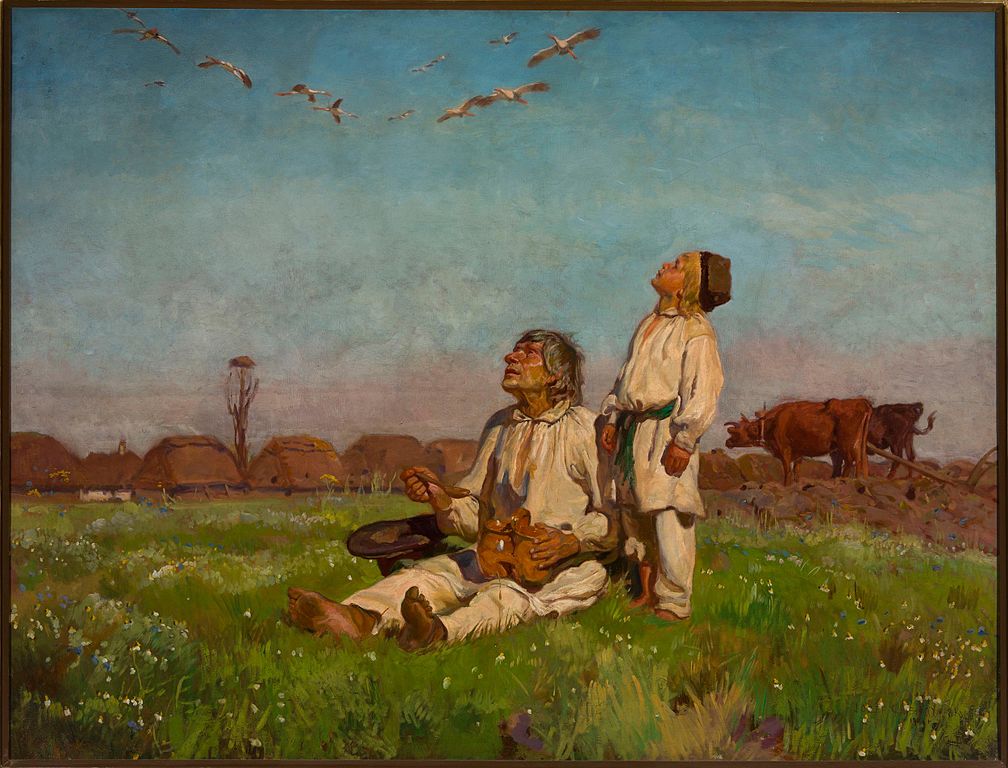Friedrich Hayek’s The Road to Serfdom is an attempt to justify the counterintuitive assertion that it’s preferable, in the name of democracy and individual freedom, to live in a society with unconscious rather than conscious social controls.
But one starts to question the logical consistency of this thesis when Hayek writes that while “competition…dispenses with the need for ‘conscious social controls’…it admits of others which sometimes may be very considerable.”
It seems paradoxical, therefore, that Hayek believed one kind of control generates greater individual freedom than another; or, that individualism is more democratic than collectivism. Critically for Hayek, individualism and collectivism are two mutually opposing philosophies, the former based on market competition to decide ends, and the latter using planning.
When Hayek speaks of individual freedom he intends it only in the negative sense, and “democracy” merely as “a utilitarian device,” through which “individual freedom” can be achieved. Thus, one may ask: To what extent can the ideas of individual freedom and democracy be reconciled with necessary unconscious controls in a competitive and individualist social order?
Perhaps the primary justification for why individual freedom and democracy require an individualist system is that, for Hayek, freedom comes from the ability to realise moral ends. But in a collectivist system, the realisation of moral ends ceases to be possible and all that remains is the pursuit of power.
Hayek claims that to believe that freedom can be achieved by a collectivist system is “the confusion of freedom with power carried to the extreme.”
This confusion is generated from the way in which collectivist systems are “destructive of all morals because they undermine … the sense of and the respect for truth.” Consequently, the planners, instead of liberating everyone, in fact, work to destroy all possibility of freedom by destroying truth through their monopoly on power.
Hayek uses the “racial doctrine of the NAZIs” almost as a parable to demonstrate this point, that within the collectivist system the lack of consistency demonstrates the absence of an absolute truth in the moral hierarchy imposed by the collective.
Moreover, the consequence of conscious social controls, is violence, against both the individual and the democratic community. The duality of this violence becomes clear through the allegory of the “rather plain girl” and the “weakly boy.” Hayek uses these two archetypal figures to demonstrate that discrimination and ultimately violence are the inevitable results of social planning in a collectivist system of morality.
These figures who, in an individualist social order could make economic sacrifices to achieve their ambitions, no longer have that option in a society built on conscious social controls. Instead the state assigns them roles based on social needs.
But should they dissent from the decision of the planners, then there is no longer any economic mechanism to discourage them – only force and violence remain. What becomes established, then, is a precedent that no one can defy the social aims of society, which means that they cannot even be challenged. So, within the structure of such logic only the unconscious social controls of the market can be compatible with individual freedom and democracy.
But such arguments only demonstrate the incompatibility between Hayek’s principles and conscious social control. Importantly, what remains unaddressed is the conflict between Hayek’s assertion that the individual should be “the ultimate judge of his own ends” and that “in no state that could be rationally defended would the state just do nothing.”
Superficially, this is an insurmountable paradox, whereby planning is both rational and self-destructively irrational. But perhaps the solution lies not in the rational but in “the spontaneous forces of our society.” For Hayek, the ends of society cannot be determined by “frustrated specialists,” using purely rational means; or, as he says, “the happiness of million cannot be measured on a single scale of less and more.”
Only by letting individuals pursue their ambitions, within “appropriate legal systems,” can individual freedom be achieved. This is not because “man is egoistic,” but rather because “the limits of our … imagination” mean that no planner, however learned, can have a complete understanding of people’s needs. Thus, only through an individual and spontaneous process is it possible to achieve freedom.
But despite Hayek’s arguments that spontaneity can provide the key, there remains an admission that “the great majority are rarely capable of thinking independently…and they will be equally content if born…into one set of beliefs or another.”
If the social order makes no difference to the freedom to think, and therefore the ability to act independently and spontaneously, then it would seem unimportant whether the control is conscious or unconscious.
If most people will just conform, then the whole idea of beneficial spontaneity is thrown into disrepute. Hayek makes the argument that this is inconsequential because it doesn’t give a minority the right to absolute power.
However if one accepts that the majority don’t have free thought, then in reality they will inevitably be controlled, not by government, but by private entities, via propaganda, or advertising. The difference is that the market system provides “competing agencies,” who prevent a monopoly on moral authority, and which would inevitably destroy truth which underpins freedom.
Ultimately one realises that Hayek isn’t the caricature he is sometimes painted as being. His argument is not that individuals should be free at the expense of everything else, at the expense of all planning, at the mercy of the market system.
Instead what one realises is that the resolution to the apparent conflict between individual freedom, democracy and unconscious social controls is through the understanding that an individualist and competitive social order both offer the opportunity, but not the guarantee, of independently and freely realising moral ends. Such ends are achieved by aspiring to a spontaneous process and by defending the supreme value of truth.
